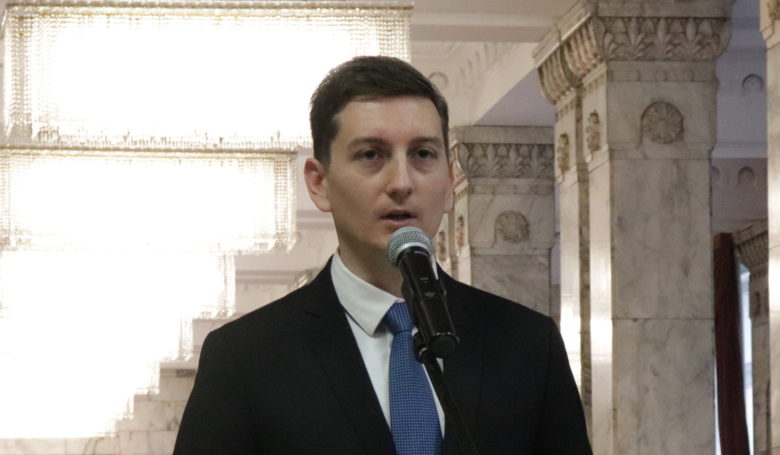The Startup Association Asked The President Of Bulgaria Rumen Radev To Veto The Questionable Airbnb Regulation

The Bulgarian Startup Association has called on President Rumen Radev to partially veto the rushed revisions in the Act of Tourism that would allow a temporary ban of online platforms such as Airbnb, Booking.com, and even Facebook. The revision, that was voted in yesterday late evening, foresees that in case the authorities discover more than three listings of non-registered as guest houses short-term rentals, the access to the platform on which the listing was encountered could be blocked for all citizens. “We understand the intention behind the revisions, the idea to collect taxes from Airbnb owners and this is completely justified. Yet, it seems to us that the particular revisions are not thought through and could harm the business,” tells us Ivan Vassilev from the Bulgarian Startup Association BESCO right before he addresses the President.
“Mr. President, yesterday we witnessed the passage of a law that would greatly endanger innovative and start-up companies in Bulgaria. I ask you to partially veto the changes in the Act of Tourism, which, to put it mildly, will not only harm the reputation of Bulgaria, but will also negatively influence the business. We believe in your responsible position on the matter and will await your decision,” Ivan Vassilev addressed to President Rumen Radev during a formal meeting with the German-Bulgarian Industrial Chamber in the presidency. In the informal part, the President had the opportunity to get acquainted in more detail about the passed revisions and their potential effect and asked BESCO to make their formal request, which Vassilev did right after the meeting.
What’s all that noise for
All properties offered through online booking platforms (by the way not explicitly named in the law, which makes it even more interpretable) like Booking.com, Airbnb, and even Facebook should be officially registered in the national registry of the Ministry of Tourism, or categorized as guest houses and pay tourism taxes. Otherwise, the platforms through which they are offered could get a temporary ban and cannot be used from Bulgaria. The right to initiate such a ban is in the hands of the Minister of Tourism, in case the Ministry identifies three listings of unregistered properties. A first violation of the act would mean 14 days of access block, a second one would cut the connection to the webpages for a month. Owners of Airbnbs now have three months to register or categorize their properties.

This is in a nutshell what a new revision of the Тourism Act, the law that regulates tourism in Bulgaria, says. It was proposed last week during a Budget 2020 planning session and passed late yesterday.
Rushed and not synchronized with the business
The Startup Association started an immediate campaign asking for the withdrawal of the revisions and a discussion that would allow more stakeholders, and particularly the business to have a saying.
There are also particular suggestions like to connect the platforms like Airbnb and Booking through the APIs they anyway have to the National Revenue Agency (NRA). Thus NRA would have access to the data, and property managers would have the incentive to pay their taxes. Yet, this solution is not an end in itself as the picture is complex. First, it should be decided what types of taxes are to pay and whether there is a difference between a short term rental and a hotel, reads BESCO statement. In addition, there should be an easier way to register a property of this kind – even online. Not least, the association suggests that the platforms shouldn’t be involved that much in the process, and shouldn’t take the responsibility and be exposed to the risk of being banned. “This would simply chase them away from this market,” members say.
What and whether there will be a reaction from President Rumen Radev remains to be seen. The press office of the President also confirmed to us that there will be an official statement in the next 14 days.
Read also:
Fine, ban or postpone regulations: What should Bulgaria do about Airbnb & Co.?




























